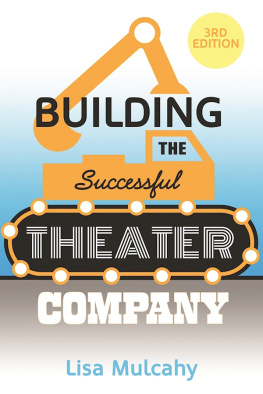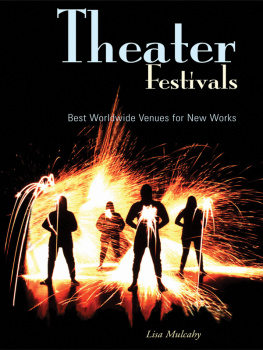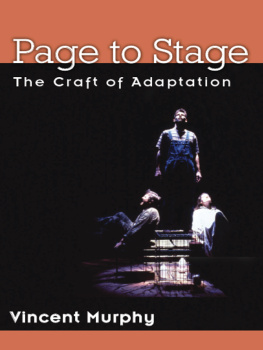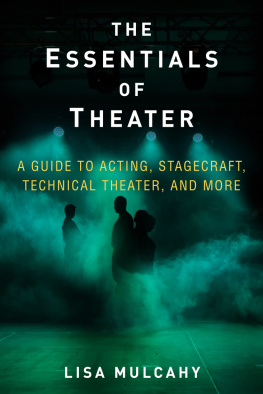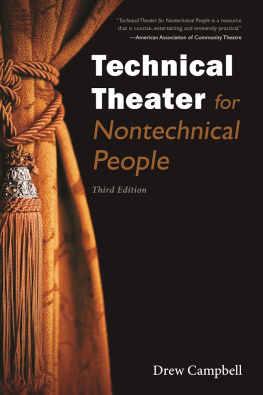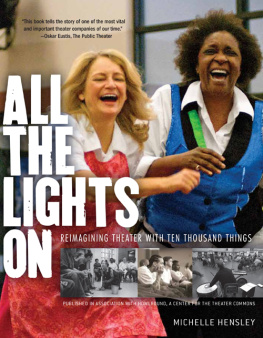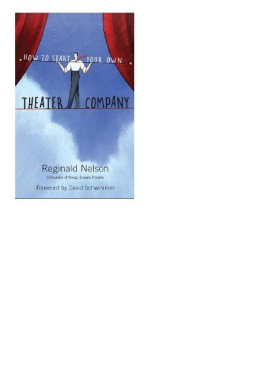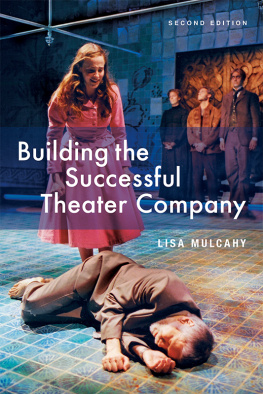Copyright 2016 by Lisa Mulcahy
All rights reserved. Copyright under Berne Copyright Convention, Universal Copyright Convention, and Pan American Copyright Convention. No part of this book may be reproduced, stored in a retrieval system, or transmitted in any form, or by any means, electronic, mechanical, photocopying, recording, or otherwise, without the express written consent of the publisher, except in the case of brief excerpts in critical reviews or articles. All inquiries should be addressed to Allworth Press, 307 West 36th Street, 11th Floor, New York, NY 10018.
Allworth Press books may be purchased in bulk at special discounts for sales promotion, corporate gifts, fund-raising, or educational purposes. Special editions can also be created to specifications. For details, contact the Special Sales Department, Allworth Press, 307 West 36th Street, 11th Floor, New York, NY 10018 or .
19 18 17 16 15 5 4 3 2 1
Published by Allworth Press, an imprint of Skyhorse Publishing, Inc.
307 West 36th Street, 11th Floor, New York, NY 10018.
Allworth Press is a registered trademark of Skyhorse Publishing, Inc., a Delaware corporation.
www.allworth.com
Cover design by Chris Ritchie
Library of Congress Cataloging-in-Publication Data is available on file.
Print ISBN: 978-1-62153-524-9
Ebook ISBN: 978-1-62153-525-6
Printed in the United States of America
FOR MY FATHER, WILLIAM MULCAHY
Table of Contents
Acknowledgments
I want to thank the following wonderful people for helping me invaluably during my work on this book:
First of all, at Allworth Press, Tad Crawford and Nicole Potter for their support of me as a writer and their tremendous guidance, trust, and encouragement. To Kelsie Besaw and Kate Lothman for their professionalism, warmth, and assistance as well.
To all of the amazing artists and administrators who participated in interviews for this book, I give my utmost gratitude. Your honesty, the generosity you show in sharing your wisdom, and your immense skills inspire me and will no doubt inspire scores of readers. Seth Barrish, Lee Brock, Gilbert Cates, Lilly Tung Crystal, Aaron Davidman, Patrick Dooley, Terrence Dwyer, Sheldon Epps, David Fuller, Corey Fischer, Michael Gennaro, Leslie Jacobson, Dona Lee Kelly, Susan Kosoff, Rick Lombardo, Susan Albert Lowenberg, Kevin Mayes, Susan Medak, Richard Pletcher, Ralph Remington, Jack Reuler, Mitzi Sales, Robert Serrell, Harriet Sheets, David Zak, and Paul Zuckerman: each of you provided me with your valuable time, insight, and memories, and Im honored to be able to pass what I learned from you on to others.
I also wish to thank the following theater personnel for their specific assistance in helping me arrange the logistics of interviews and for providing me with supplementary materials: Sheila Boyd, Brian Colvern, Kay Elliott, Elisa Hale, Terrence Keane, Emily Lister, Stacey Moore, Jason Raitt, Allison Rawlings, Jane Staab, Sara Truog, Shay Wafer, and Helene Sanghri York.
I would like to give a very special thank-you to Molly Smith, Artistic Director of Arena Stage.
For special technical assistance, I would like to thank Geoff Grammel and Johanne Cimon of the Most Office in Fitchburg, Massachusetts, whose work is excellent.
To my entire family, thank you for your support. To my posse of friends, you know who you are. To all of the phenomenal artists Ive encountered throughout my long life in the theater, thanks for great times.
To the Brandeis University theater community, especially Ted Kazanoff, thanks for a great education. Thank you also to Edward Albee for giving me a wonderful break. To my mother, Joan Mulcahy, you mean the world to me and I cant believe I am lucky enough to be your daughter. Thanks, Mom, to you and Dad for instilling me with strength and confidence and standing by my side every minute. Youre the greatest.
Introduction
What Makes a Theater Company Successful?
Passion. Blind faith. Talent. Navet. Focus. A burning desire to say something important.
These are some of the qualities possessed by those brave individuals who enter the incredibly challenging field of professional theater. Its been said by many, including me, that in order to take on a career in the dramatic arts, your need to do it must supersede virtually every other desire you could possibly have. To make it, you must make sacrifice your best friend: sacrifice of your time, sacrifice of your financial security, sacrifice of your personal life, sacrifice, many times, of every last shred of your peace of mind.
You must also be a very tough cookie. Your self-esteem had better be bulletproof, and not simply in terms of the endless professional rejection and struggle you will invariably face. You also need to know who you are and like who you are 24/7, because you cant measure success in the theater by any conventional business model yardstick. Its very, very hard to get rich running a theater company, for example, to be able to see those profit numbers pile up on paper, as one could if he or she was running, say, a Fortune 500 company (or nearly any other type of company, for that matter).
So why do it, then? Well, theres passion. Blind faith. Talent. Navet. Focus. A burning desire to say something importantand feel free to add your personal reasons to that list. The world is, indeed, fortunate and better off for the fact that there are those people who live to act, direct, write, stage manage, design for the stage, work tech crew for shows, and, perhaps the most daunting prospect of all, found and build their own theater companies.
This book will examine the processes and practicalities involved in running a professional theater company. I was privileged to interview at length the key personnel who run thirteen of this countrys most successful, free-spirited, and artistically vital theater companies, and I learned more from them than I ever thought possible (even though Ive worked in professional theater for many years myself). These folks do not pull punches. Theyre realistic, due to personal ideology as well as from hard experience. Theyre also as excited about their companies today as the day they started working on them. Their artistic and business perspectives are fluid and fresh, no matter how many years (in some cases, decades) their companies have been operational. Theyre survivors, both artistically and financially, and theyre inspirations.
I choose to let these fascinating subjects tell their stories themselves in a series of directly quoted anecdotes that, to me, feel a lot like the type of discourse that might take place after a show, over a late, lingering dinner, when youthe hopeful, eager noviceare lucky enough to be seated next to a legendary elder whos in the mood to reminisce for a while. What will be discussed adds up to a full explanation of what factors make a solid theater company develop and persevere.
Diversity was a key component in my selection of the theater companies I wanted to include within this book. Some of the companies well be examining are traditional repertory organizationsthat is, in terms of definition, a resident company of actors performing a number of different shows throughout a set season. Other companies are more concerned with a very specific artistic concentrationproducing plays that speak to multicultural issues, for instance. Some bust all myth, expectation, and convention, and that is their mission statement.
So what makes a theater company successful? Primarily, its the importance of combining a sharp artistic focus, a smart and objective business viewpoint, a fully operational approach to physical production in any given venue, and a big-picture plan.

